
Web scraping is a technique organizations and researchers use to extract useful information from the web. However, this method poses various ethical and technical concerns. Many websites employ anti-scraping measures, making collecting data efficiently and responsibly challenging. Further, frequent similar requests from multiple locations can arouse a system's suspicion, resulting in access being denied.
Luckily, static residential proxies solve these problems while ensuring ethical scraping practices. These proxies have a static IP address that mimics actual users' actions. With the aid of static proxies, scrapers can work undercover, conform to the policies of the target websites, and not crash their servers.
So, how do you adhere to the best web scraping practices without being penalized? Thankfully, this article describes how these proxies facilitate responsible data acquisition and meet the expectations of scrapers and website owners.
What is a Residential Proxy?
A Residential Proxy is a type of proxy that uses a network of residential devices by a service provider, typically in exchange for payment of some kind to the individual providing the device. This provides businesses with many advantages that we'll discuss in this article, including the ability to stay anonymous, appear as regular users, access resources from many disparate locations at once, scraping web content for later analysis, and many others, all while reducing load on their own servers.
Gathering Data the Ethical Way With Static Residential Proxies
 Static residential proxies are crucial in helping web scrapers adhere to a website's terms of service. These proxies simulate genuine user behavior, significantly reducing the risk of being flagged or banned by target websites. Using a static IP address, scrapers can establish a more humanlike and consistent browsing pattern, aligning with most websites' expectations of regular user activity.
Static residential proxies are crucial in helping web scrapers adhere to a website's terms of service. These proxies simulate genuine user behavior, significantly reducing the risk of being flagged or banned by target websites. Using a static IP address, scrapers can establish a more humanlike and consistent browsing pattern, aligning with most websites' expectations of regular user activity.
This approach promotes ethical data collection practices in two ways:
- It allows scrapers to respect website rate limits, prevent server overload, and fairly balance data collection needs and server resources.
- Static residential proxies enable scrapers to implement polite crawling techniques, such as honoring robots.txt files and avoiding aggressive scraping patterns.
Therefore, by mimicking legitimate user behavior, these proxies help maintain the integrity of web scraping operations while respecting website owners' rights and resources.
Reduced IP Blocking Risks
These proxies can provide static IP addresses that closely resemble regular users. They allow users to maintain continuous access to target websites without harsh penalties. With the option of choosing static IPs, scrapers can establish a more trustworthy and stable online presence, reducing suspicion from web servers and anti-scraping systems.
This approach offers several advantages for ethical web scraping. First, it enables users and businesses to conduct long-term data collection projects without frequent disruptions caused by IP blocks of dynamic IPs with a cable modem. Secondly, static residential proxies help maintain the quality and consistency of gathered data by ensuring uninterrupted access to sources.
Lastly, these proxies minimize the strain on target websites' resources by reducing the need for constant IP rotations, promoting a more balanced and responsible scraping ecosystem. This stability not only benefits scrapers but also respects the infrastructure of the accessed websites.
Reduced Likelihood of CAPTCHAs
Residential IPs in web scraping activities greatly minimize the possibility of dealing with CAPTCHA tests. Many websites utilize CAPTCHAs to tell whether a user is a person or a machine, but they tend to trust residential IPs more than data center IPs. This trust stems from the fact that ISPs provide residential IPs, and they appear to be ordinary users surfing the web. For this reason, scrapers working via residential proxies can scrape sites more efficiently.
The reduced likelihood of CAPTCHAs offers several benefits for ethical web scraping. It allows for more efficient data collection, as scrapers spend less time-solving puzzles or bypassing security checks. This efficiency translates to lower resource consumption and less strain on target websites. However, scrapers must still respect website terms of service and scraping etiquette, even when CAPTCHAs are less frequent.
Improved User Experience
Static residential proxies empower businesses to view their websites through their customers' eyes. Companies gain valuable insights into website performance and user experience by mimicking real user connections. This perspective allows them to identify and address potential issues quickly.
For example, a firm might discover that certain web pages load slowly from specific geographic locations. Armed with this knowledge, it can optimize content delivery networks or adjust server configurations. By enhancing its services based on these insights, the business ensures scraping practices contribute positively to the online ecosystem.
Therefore, a virtuous cycle appears, where ethical data collection leads to better user experiences for everyone. This approach aligns scraping activities with the broader goal of improving the internet landscape rather than simply extracting data.
Open Source Tools for Web Scraping and Proxy Management
Diving into web scraping can be both exhilarating and a bit daunting, especially when you realize the importance of proxy management to avoid getting blocked. I’ve been there, navigating through countless lines of code and documentation. We're hoping these tips will be enough for you to get started.
These open-source tools offer extensive documentation, support integration with other technologies, and provide flexibility and community support, making them highly effective for various aspects of web scraping and proxy management. Here are a few that have stood out in my experience.
Scrapy Web Scraping Framework
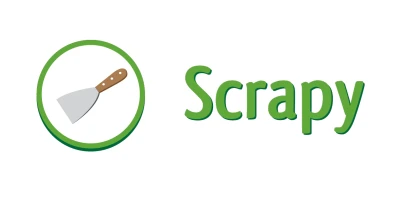 Overview: Scrapy is your go-to if you want to set up a robust and customizable scraping pipeline. It's a Python framework designed specifically for web scraping.
Overview: Scrapy is your go-to if you want to set up a robust and customizable scraping pipeline. It's a Python framework designed specifically for web scraping.
Why It's Awesome: Scrapy lets you easily define how and what you want to scrape. It supports middleware and includes built-in support for requests, responses, and item pipelines.
Getting Started: Install Scrapy using pip install scrapy. You can start a new project with scrapy startproject myproject, then create a spider via scrapy genspider myspider example.com.
BeautifulSoup Web Scraping Framework
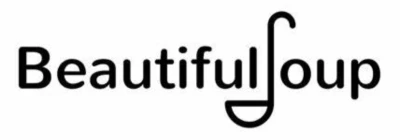 Overview: BeautifulSoup is a Python library that works with your favorite parser to extract data from HTML and XML files. It commonly saves programmers hours or days of work. This Python library makes it super easy to navigate and search through the HTML. It's also probably the most popular.
Overview: BeautifulSoup is a Python library that works with your favorite parser to extract data from HTML and XML files. It commonly saves programmers hours or days of work. This Python library makes it super easy to navigate and search through the HTML. It's also probably the most popular.
Why It's Awesome: BeautifulSoup is great for quick and dirty scraping, where you need to extract specific parts of a webpage's content without setting up a complete Scrapy project.
Getting Started: Install it with pip install beautifulsoup4. To parse a webpage, simply use from bs4 import BeautifulSoup and load the HTML content using soup = BeautifulSoup(html, 'html.parser').
Puppeteer Web Scraping Framework
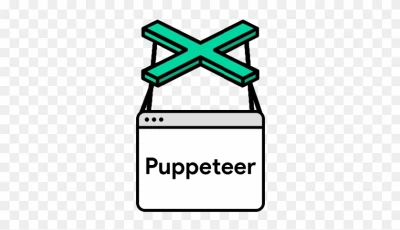 Overview: Puppeteer is a Node.js library that lets you control headless Chrome. It’s amazing for scraping websites that rely heavily on JavaScript.
Overview: Puppeteer is a Node.js library that lets you control headless Chrome. It’s amazing for scraping websites that rely heavily on JavaScript.
Why It's Awesome: Puppeteer can render client-side JavaScript, handle cookies, and even take screenshots of the rendered pages. It's incredibly versatile and powerful.
Getting Started: First, install it using npm install puppeteer. You can then launch a headless browser and open a page with:
const puppeteer = require('puppeteer');(async () => { const browser = await puppeteer.launch(); const page = await browser.newPage(); await page.goto('https://example.com'); await page.screenshot({path: 'example.png'}); await browser.close();})();
ProxyChecker Multithreaded Proxy Checker
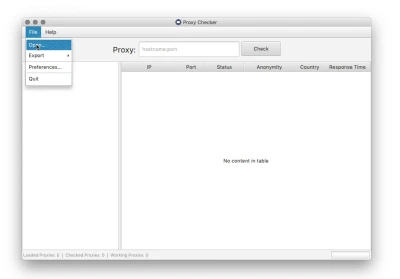 Overview: An easy-to-use open-source, multithreaded Proxy Checker. It lets you quickly check HTTP and SOCKS proxies in a user-friendly Windows, Mac OS, and Linux GUI.
Overview: An easy-to-use open-source, multithreaded Proxy Checker. It lets you quickly check HTTP and SOCKS proxies in a user-friendly Windows, Mac OS, and Linux GUI.
Why It's Awesome: You can regularly check the availability and responsiveness of your proxies. This helps ensure you always have a good list of functioning proxies.
Getting Started: Grab it from the GitHub repo. Usage is straightforward; just run it from the command line with your list of proxies.
Fiddler Web Debugging Proxy
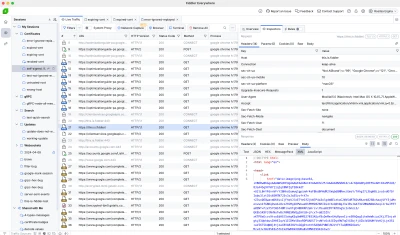 Overview: Fiddler is a powerful proxy debugging tool that logs all HTTP(S) traffic between your computer and the internet. Though not always open-source, it has a community edition that is free and highly useful.
Overview: Fiddler is a powerful proxy debugging tool that logs all HTTP(S) traffic between your computer and the internet. Though not always open-source, it has a community edition that is free and highly useful.
Why It's Awesome: Fiddler helps you inspect web traffic, set breakpoints, and even manipulate requests and responses. It's great for troubleshooting and optimizing your scraping setup.
Getting Started: Download and install from the official site. Launch Fiddler and set your application to use it as an HTTP proxy, usually via localhost:8888.
OpenProxySpace Proxy Checker
Overview: It’s a simple yet effective go-to for free proxy lists. While free proxies come with risks, OpenProxySpace offers a wide selection that can be periodically refreshed. There's a ton of free tools available here.
Why It’s Awesome: It’s suitable for testing and getting a feel for how multiple proxies work without an upfront investment. It's not great for production but handy for learning.
Getting Started: Download proxy lists directly from their website and integrate them into your scripts or ProxyChecker for validation.
Any others we may have missed? Any perl programmers left? Let us know!
Our Final Thoughts on Supporting Ethical Web Scraping Practices with Static Residential Proxies
Static residential proxies are crucial in ethical web scraping and offer benefits beyond data collection. By embracing these tools, businesses can conduct research responsibly, respect website resources, and contribute to a healthier internet ecosystem.
Consequently, exploring static residential proxy solutions will ensure you enjoy these merits to the fullest. Commercial offerings enable companies to gather valuable insights while maintaining ethical standards. What's your experience been like? Have you found advantages to using some of the commercial options over the open-source options?















